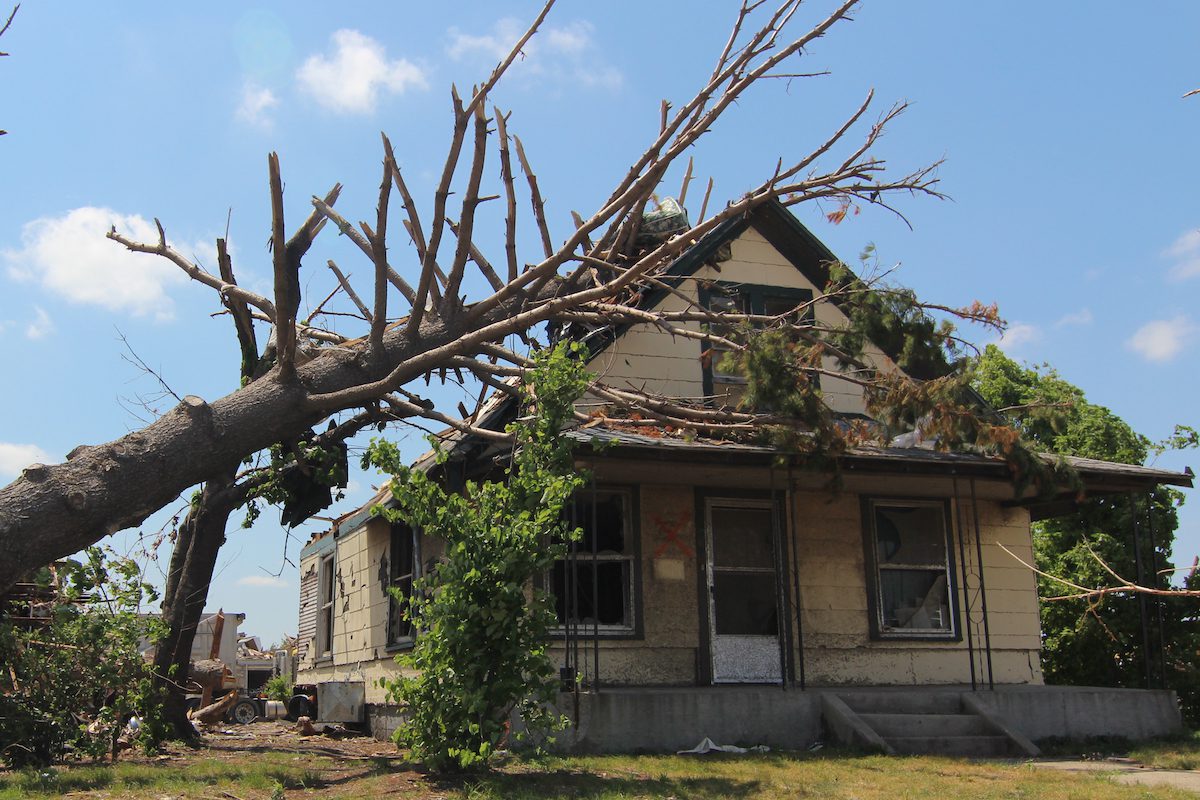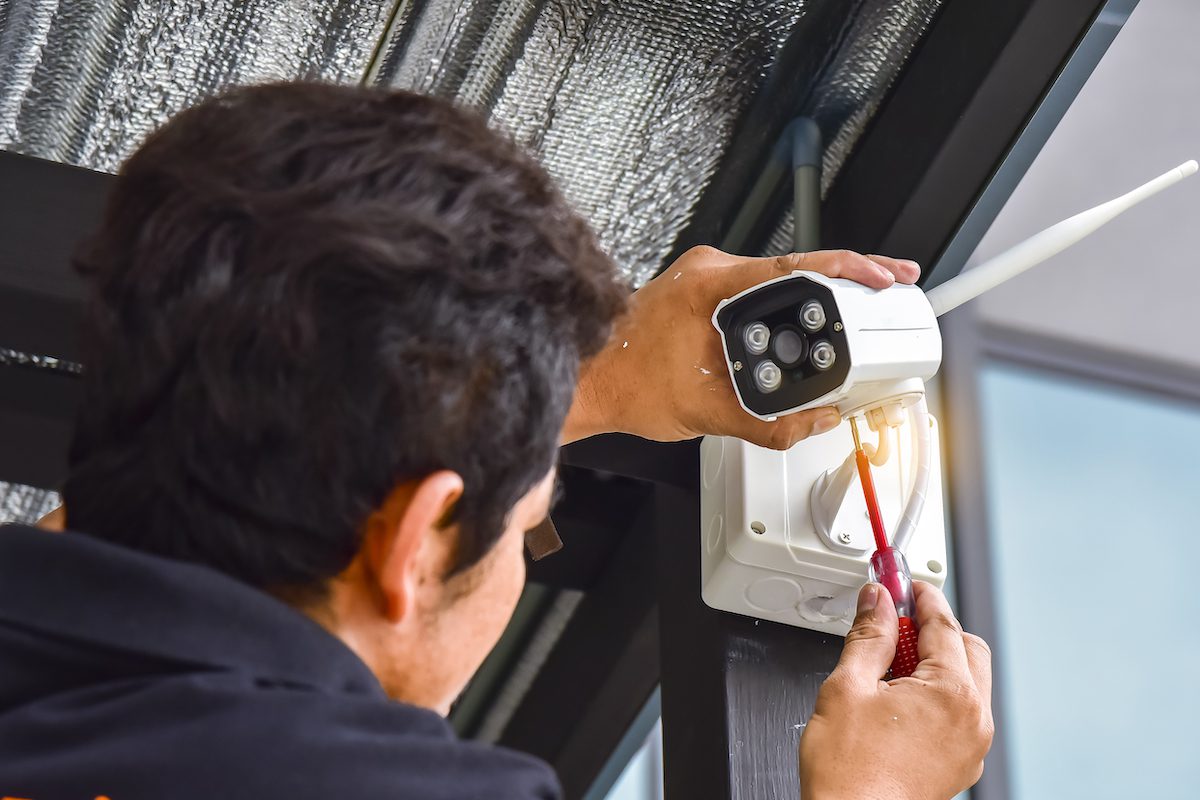How Much Does Landlord Insurance Cost?
When you own a home and live in it, insurance is pretty straightforward. Most have their homeowners insurance costs rolled up into their monthly mortgage payments. You don't even have to think about paying for the coverage.

It gets a little more complicated with a rental property. Homeowners insurance won't cover you necessarily, so you'll need to take out a landlord insurance policy. This ensures the proper liability protection and property coverage for the owner of a rental property.
How much your landlord policy will cost, and what exact insurance coverage you need can vary by the property size, state regulations and more. Make sure you're covered, though. Get landlord insurance.
What is landlord insurance?
Landlord insurance is a type of insurance specifically for people who rent out their properties. This coverage typically costs about 15-25 percent more than regular home insurance.
The goal of landlord insurance is to protect you, the landlord, from financial loss as it relates to the home, which is still your personal property, no matter who's living in it.
Having a landlord insurance policy in place before you begin renting means you can roll your annual premium into the rental income you'll get from your tenants.
What does landlord insurance cover?
Landlord insurance policies generally cover the property itself. This can include the actual home, as well as any equipment also found on-site that helps maintain the property. A standard policy also includes liability insurance coverage to protect you from the risks associated with renting the property out.
Insurance carriers typically provide coverage for:
- Cost of repairs for damage caused by a natural disaster like fire or hail
- Replacement cost or repair costs for detached structures like a fence
- Replacement value refund for equipment damaged or stolen as long as it's used to maintain the property (and it's on-site.) Items like lawnmowers count.
- Legal or medical expenses resulting from an on-site injury only if you're found responsible
Covering both damages and liability claims should give you broad enough coverage for most situations, however, it may not cover all scenarios. If you live in an area prone to flooding, for example, you'll also want to get flood insurance. The same is true if wildfires are common in your area. Having additional fire insurance will ensure you have full protection in case something happens.

Types of landlord insurance
Every type of landlord insurance has its own deductible and its own limits. These factors need to get looked at when evaluating types of landlord insurance since they can affect your bottom line. You may never have to pay your deductible, but can you afford it? Similarly, will the limit cover enough damage to your rental property to keep you financially sound?
Other features go into individual insurance policies, which is why looking at each type will help you make the best decision for your own rental property.
Remember, each policy has two pieces to it:
- Property damage insurance: Covers the cost of repairing or replacing any damage to the property caused by specific perils
- Liability insurance: Covers any legal costs and damages awarded if a tenant sues you for something like injuries sustained on the property
You'll want a policy with adequate insurance coverage in both areas.
DP1 (minimal coverage)
This type of rental property insurance is a named perils policy because it specifically lists everything covered, and only covers damages related to those specific perils. While the full list of perils included in this policy can vary between insurance providers, common coverage includes:
- Fire
- Extreme weather
- Explosions
- Smoke
- Aircraft and vehicular damage
- Vandalism and malicious mischief
If your policy doesn't cover all the perils you'd like included, some will be available as an add-on. Talk with your insurance agent to make sure.
Coverage within this policy is known as actual cash value, which means the dollar amount you get paid goes down over time. This is similar to what happens with car insurance. The older the insured item is, the less it's worth.
DP1 insurance often has the lowest insurance premiums, so it's the cheapest, but not always the most cost-effective.
DP2 (average protection)
Often referred to as the Dwelling Fire Form 2 insurance, DP2 is very much middle-of-the-road when it comes to coverage. It's a little more of a comprehensive landlord insurance policy than DP1, although it's also a named peril policy.
Expanding the list of covered damages, DP2 insurance will typically include the same perils as DP1, with the addition of things like:
- Burglary damage
- Ice and snow
- Falling objects
- Glass breakage
- Electrical damage
- Tearing, cracking, burning or bulging
This policy type can even cover the collapse of your rental property. Again, though, the policy only covers the perils listed. Anything else is not.
A major difference from DP1 to DP2 insurance is replacement cost insurance. DP2 doesn't take depreciation into account when providing compensation for a claim. It means payouts are more comprehensive and you'll most likely spend less out-of-pocket.
Loss of rental income coverage
Many DP2 policies have additional liability protection against loss of rent. This doesn't mean you're covered if a tenant simply doesn't pay, but rather you can file a claim for loss of rent while repairs are done on the home from damage caused by an approved peril.
For example, if your rental property gets damaged because the pipes freeze and burst, and the tenant must move out because there's no water in the home, your policy would cover rent so you don't have to ask your tenant to pay when they're not living in the property.
DP3 (best coverage)
In the past, DP3 policies covered homes in place of a homeowners insurance policy, and many insurance companies prefer them. Today, things are more separate, but that doesn't mean DP3 isn't any less extensive in its coverage of rental properties.
DP3 insurance is an open peril policy, which means it covers all possible perils. There's no list of what's covered, although there are a few things excluded you'll need to supplement. Typical items excluded from the policy, like water damage, can often be covered in an add-on, like flood insurance. Some items not covered are most likely not a huge concern for you either, like war or nuclear hazards.
As with DP2, DP3 is a replacement cost insurance, so repairs are made in full once you've paid your deductible. Dwelling coverage includes the entire home and outbuildings, as well as general liability protection. The policy also has a loss of rent section, similar to DP2.
Do I need landlord insurance and homeowners insurance?
While there's overlap between coverage within regular homeowners insurance and a landlord policy, the two are separate types of insurance for two specific situations. If you're renting out your property, you'll need landlord insurance. For owner-occupied homes, you'll need homeowners insurance.
If there's any grey area, your insurance company can break down which type of policy will most effectively protect you and your property.

Are there any discounts worked into the cost of landlord insurance?
There are plenty of landlord insurance discounts available, and many are pretty easy to get. While the specifics of each discount may vary, they all fit into one of four categories.
Safety discounts
These go to landlords who take good care of their property. If you have safety equipment or enhancements like burglar alarms or motion lights, you may get this discount. You may even qualify if you've upgraded your roof at any point.
Bundling discounts
If you already work with an insurance company you like, and they offer landlord insurance, consider getting your policy from them to qualify for a bundling discount. The more insurance types you can group together, the bigger the discount usually. Think home, landlord, car, life and even an umbrella policy.
Loyalty discounts
In addition to bundling, if you've been with your insurance company for a long time, you may get a loyalty discount, too. You may also be eligible for this type of discount if you refer friends and family to your insurance provider and they get coverage of their own.
Group discounts
Not as common when it comes to landlord insurance, you are eligible for this discount if you're a veteran, teacher or government employee.
Should your tenant also buy renters insurance?
While it's not required, you may want to consider ensuring your tenants cover their personal property by getting their own renters' insurance policy. This will protect all of their belongings that go into the rental from things like theft and damage. Their policy might also include some personal liability coverage in case an injury happens to a guest while over, as well.
None of the landlord insurance policies include coverage for your tenant's property, and you don't have to get that coverage for them. You can offer to put them in touch with your insurance broker to get some help, though, and even add a section to your lease saying you strongly recommend they get a policy of their own.
Knowing you won't have to argue with your tenant about any damage to their stuff, because they have the right coverage to complement yours, can give you peace of mind as a landlord.

Is landlord insurance tax deductible?
As a landlord, you're now in the real estate business, which means all expenses related to your rental are tax-deductible. This includes the cost of landlord insurance. It's generally tax-deductible since it's very much a business expense. You wouldn't need this additional coverage if you weren't renting.
Getting the right insurance for your rental property
With so many options for property coverage available, the hard work isn't finding landlord insurance, but rather picking the right policy for you. Take your time, and look carefully at each insurance premium and coverage list before picking a landlord policy that fits your specific needs. Then, take a deep breath. Your personal property is safe. You've got one less thing to worry about as a landlord!
